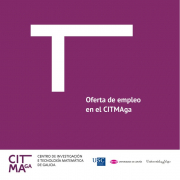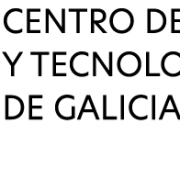Plaza post-doctoral en la Universidad de Zaragoza
POST-DOCTORAL POSITION WITHIN THE PROJECT
«Physics-informed Artificial Intelligence for Cognitive Twins of Complex Systems»
The Applied Mechanics and Bioengineering (AMB) group of the University of Zaragoza (see http://amb.unizar.es) is one of the leading groups within the computational mechanics community at a national and European levels, comprised by 20 senior faculty members and a variable number of Ph.D. students and post-doctoral associates.
The group has a broad experience in the development of advanced simulation techniques such as meshless methods, model order reduction and, more recently, scientific machine learning for the simulation of complex, multi physics and multiscale phenomena.
With the recently awarded project Physics-informed Artificial Intelligence for cognitive twins of complex systems we aim at developing novel tools for the machine learning of complex physical phenomena with guaranteed physical meaning.
In the frame of this emergent project in the group, we seek a highly motivated postdoctoral candidate to develop and implement artificial intelligence tools able to achieve physical perception and reasoning about complex physical phenomena taking place in the neighborhood of this AI.
ROLE SUMMARY:
The candidate, in close collaboration with profs. E. Cueto, D. González, I. Alfaro, and the rest of the team, will develop advanced AI techniques based on physics-informed neural networks towards the creation of cognitive digital twins, able to understand the surrounding environment and adapt to changing scenarios.
CONTRACT DETAILS:
Applications/interviews: Please send an email expressing your interest, together with a CV to Prof. Elías Cueto (). Reviews of applications will continue until the position is filled.
Initial date: As son as possible.
Duration: 2 years.
Dedication: Full-time, 40 h/week.
Gross annual salary: 42983 € (including Spanish public health and social security benefits).
SKILLS / QUALIFICATIONS:
Hard / Essential:
• PhD in Computational Continuum Mechanics (or similar), with a strong numerical focus on mathematical modeling.
• In-depth, hands-on knowledge of modeling software and computer programming (MATLAB, Python, C/C++, Fortran) as well as of the Finite Element Method and its procedures.
Hard / Desirable:
• Knowledge about neural network programming (preferably, PyTorch).
• Knowledge on Computer Vision.
• Computational Solid Mechanics.
• Image Processing and Data Analysis.
Soft / Essential:
• Keen interest in learning novel computational methods.
• Self-directed with the ability to work independently.
• At the same time, ability to work in group and (co-)advise doctoral students.
• Excellent communication and writing skills in English.
CONTACT:
If interested, please send your CV, a cover letter, and a reference letter to Elías Cueto ().









